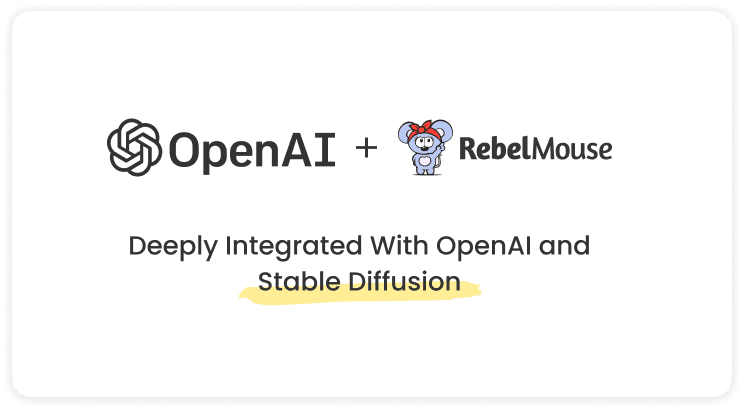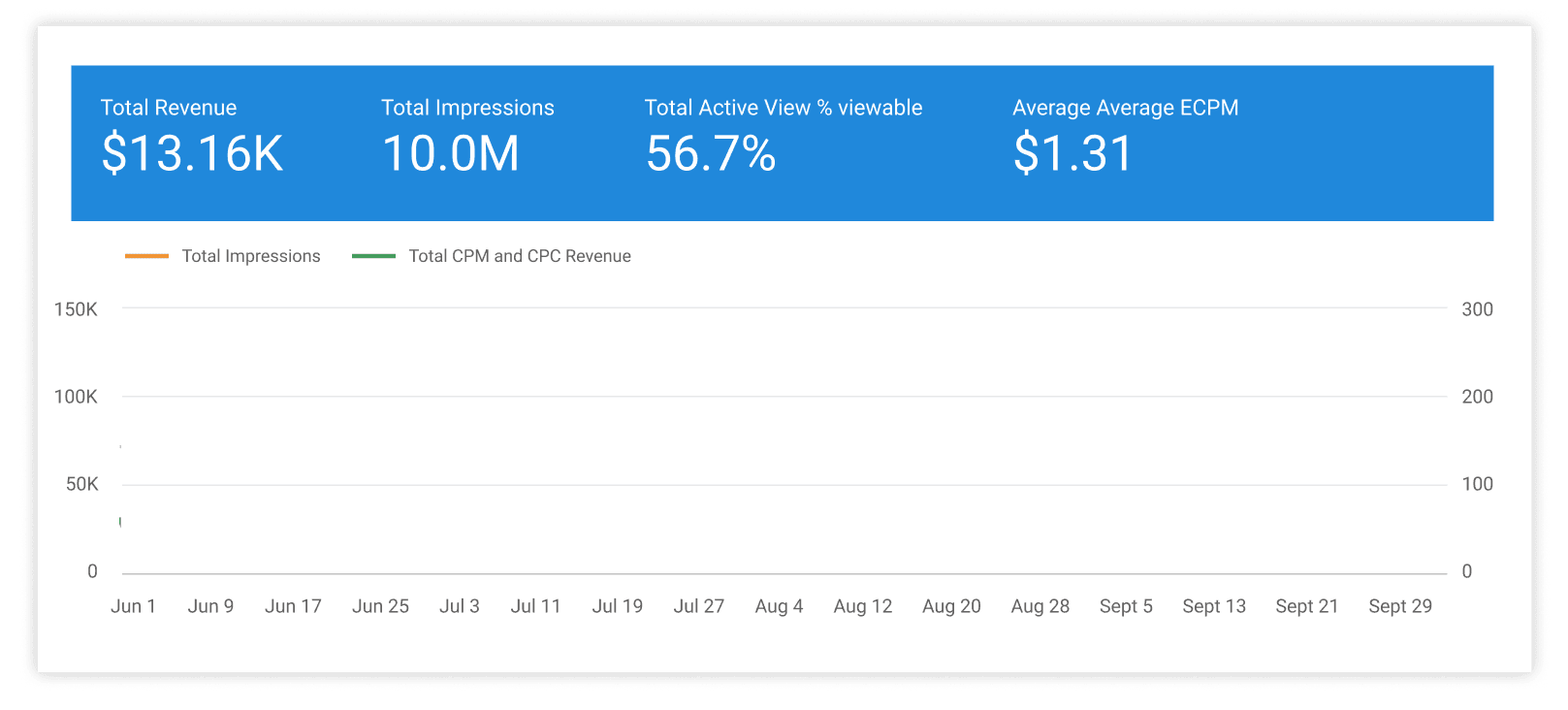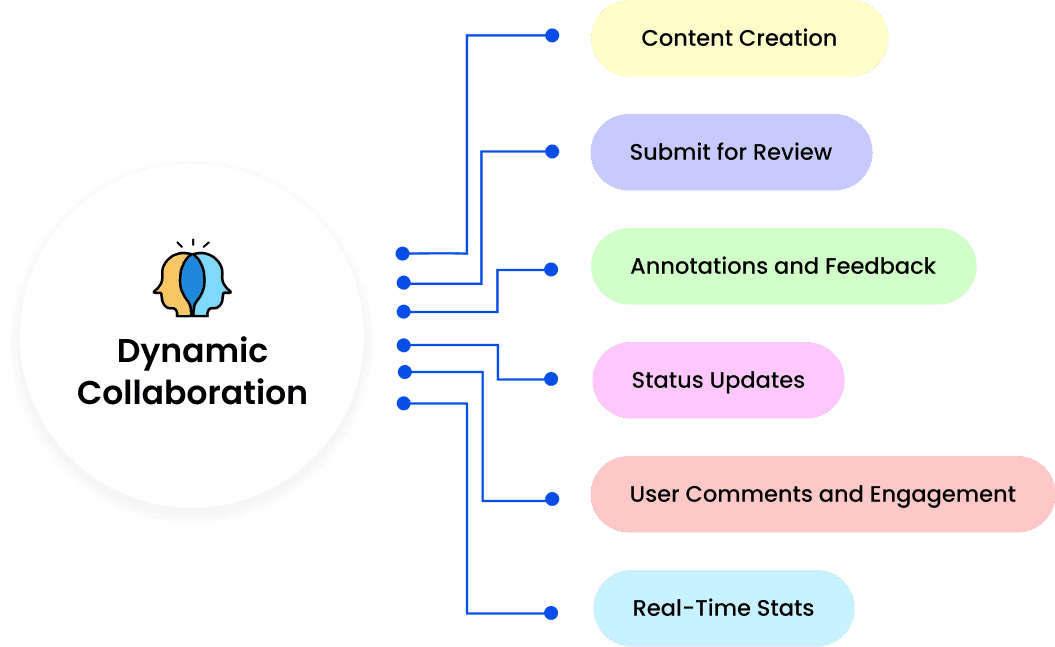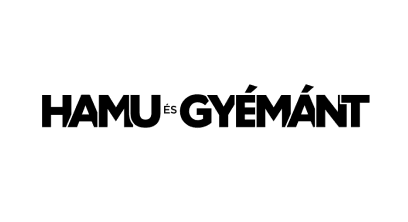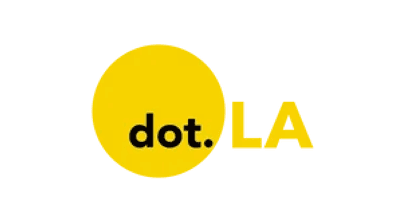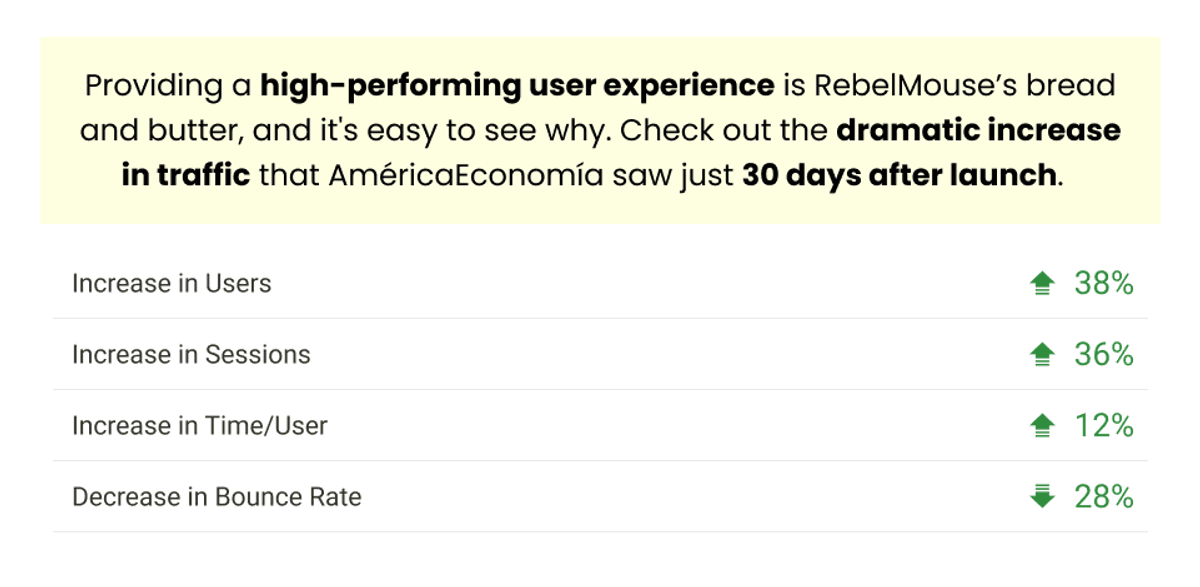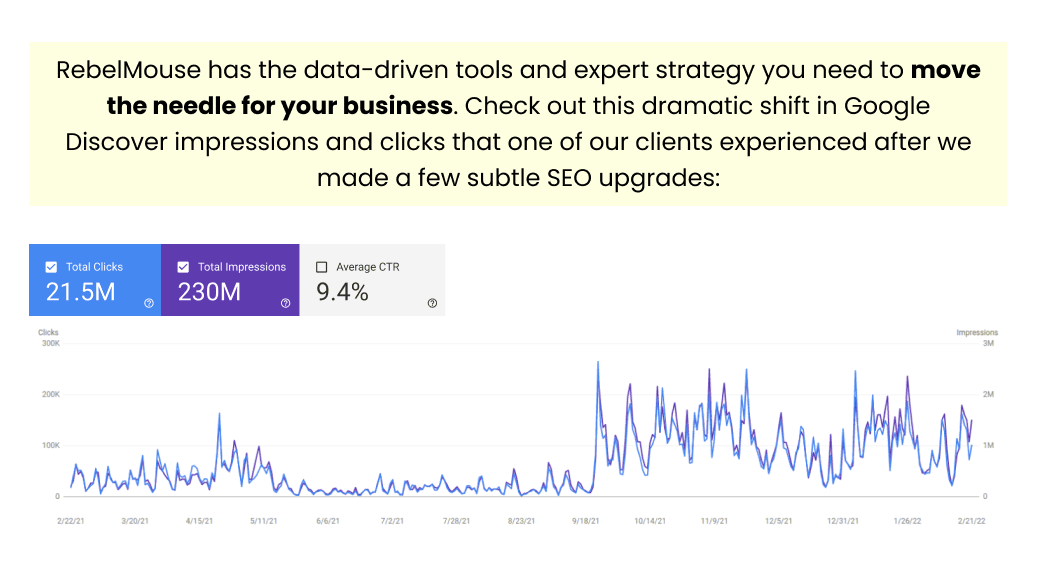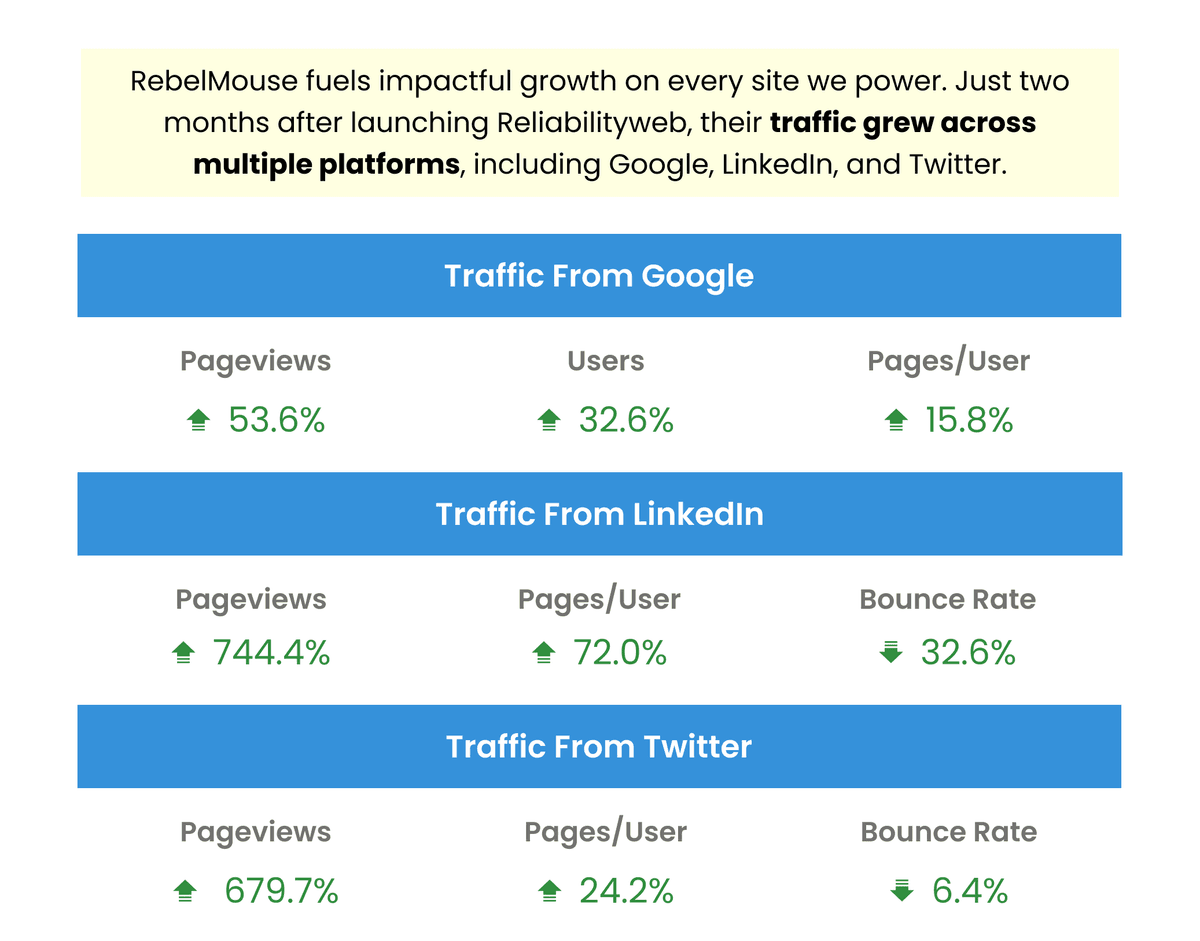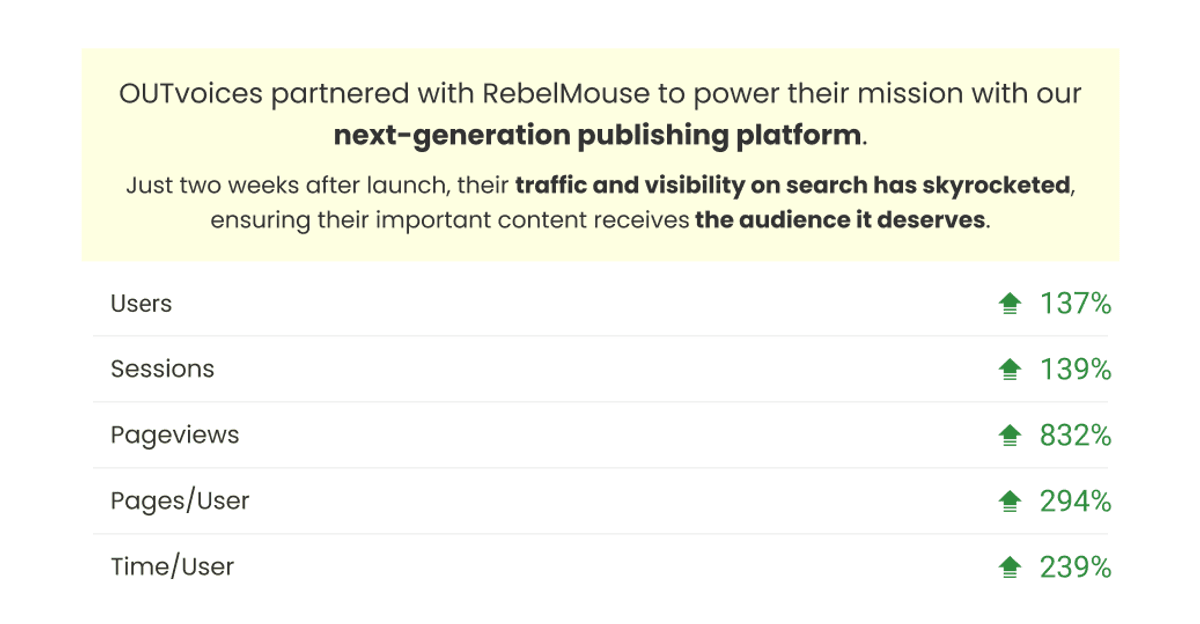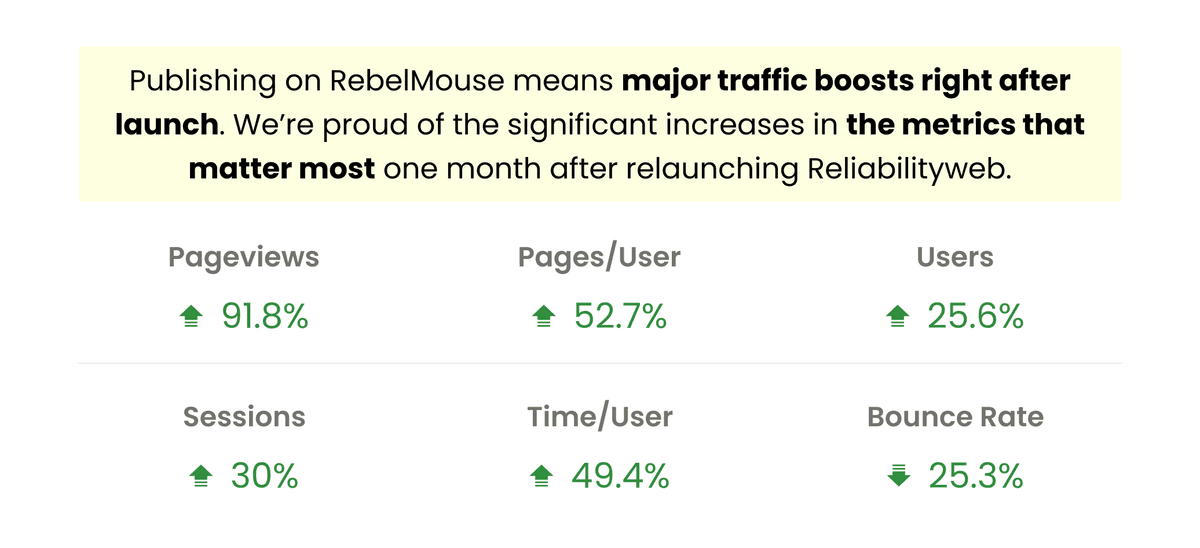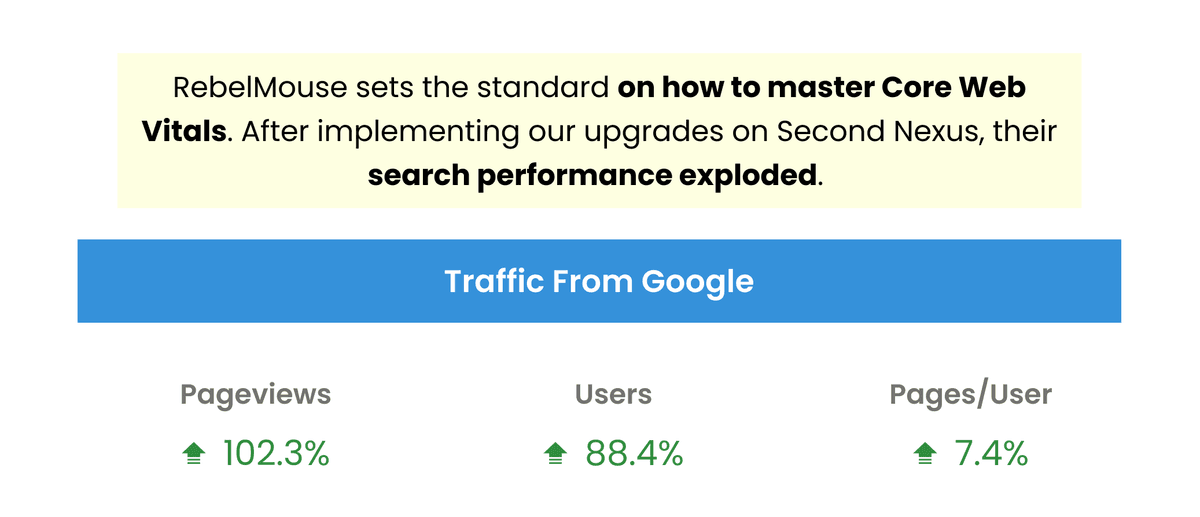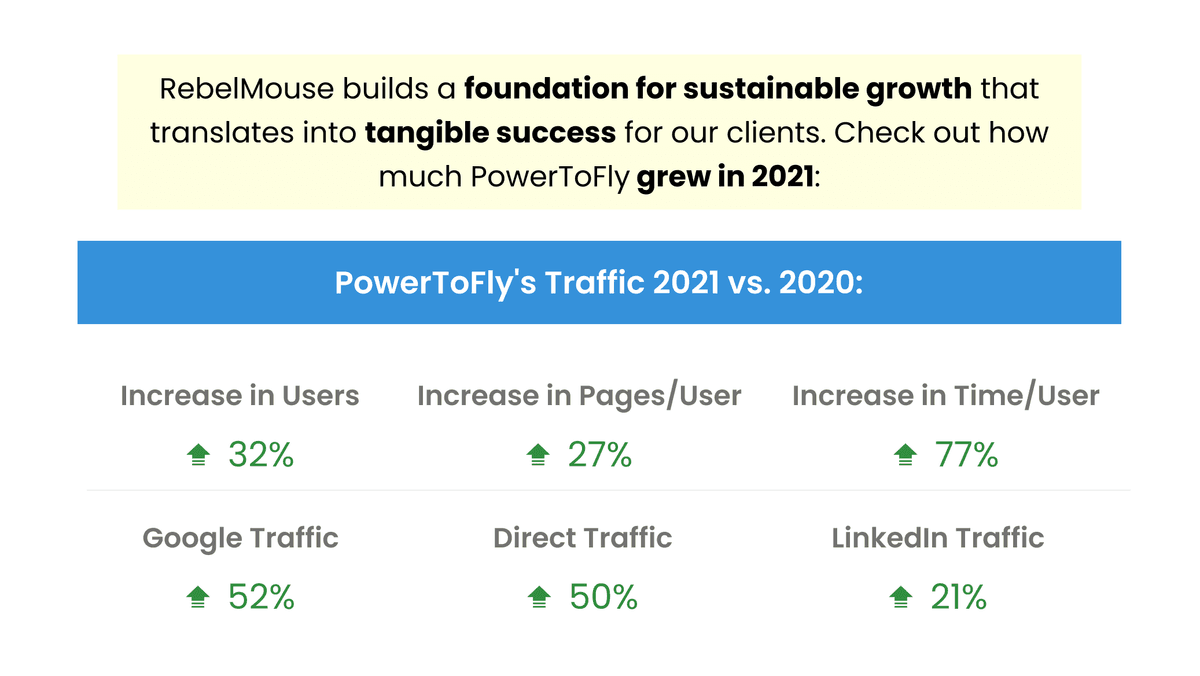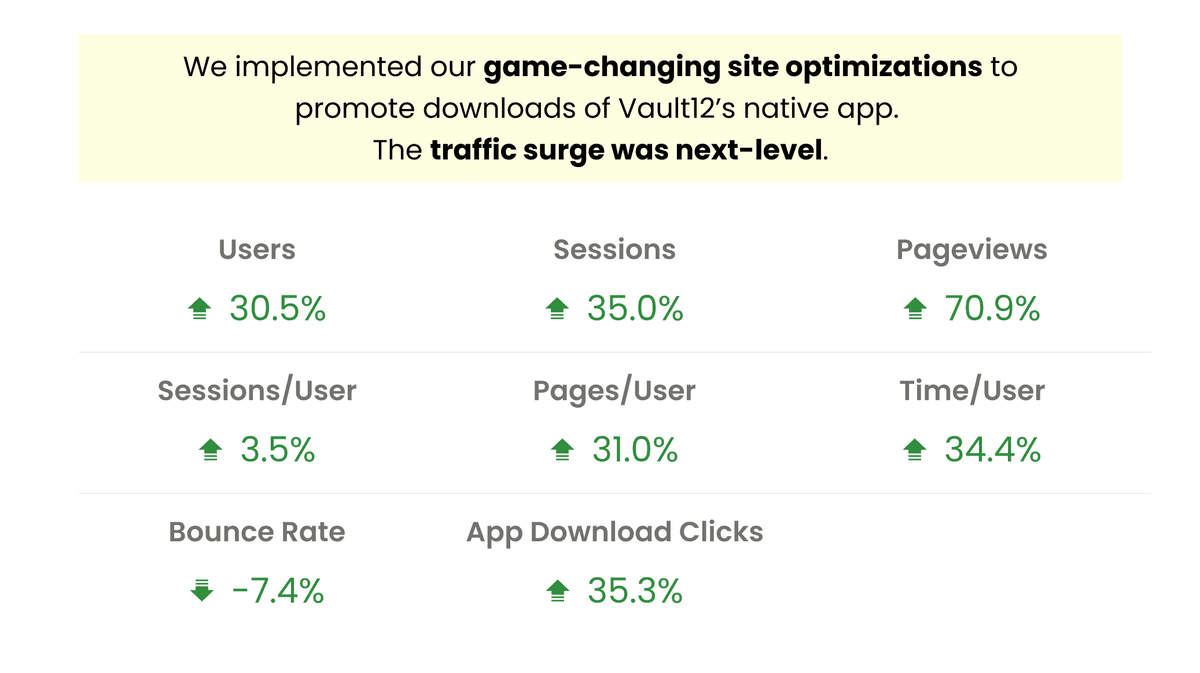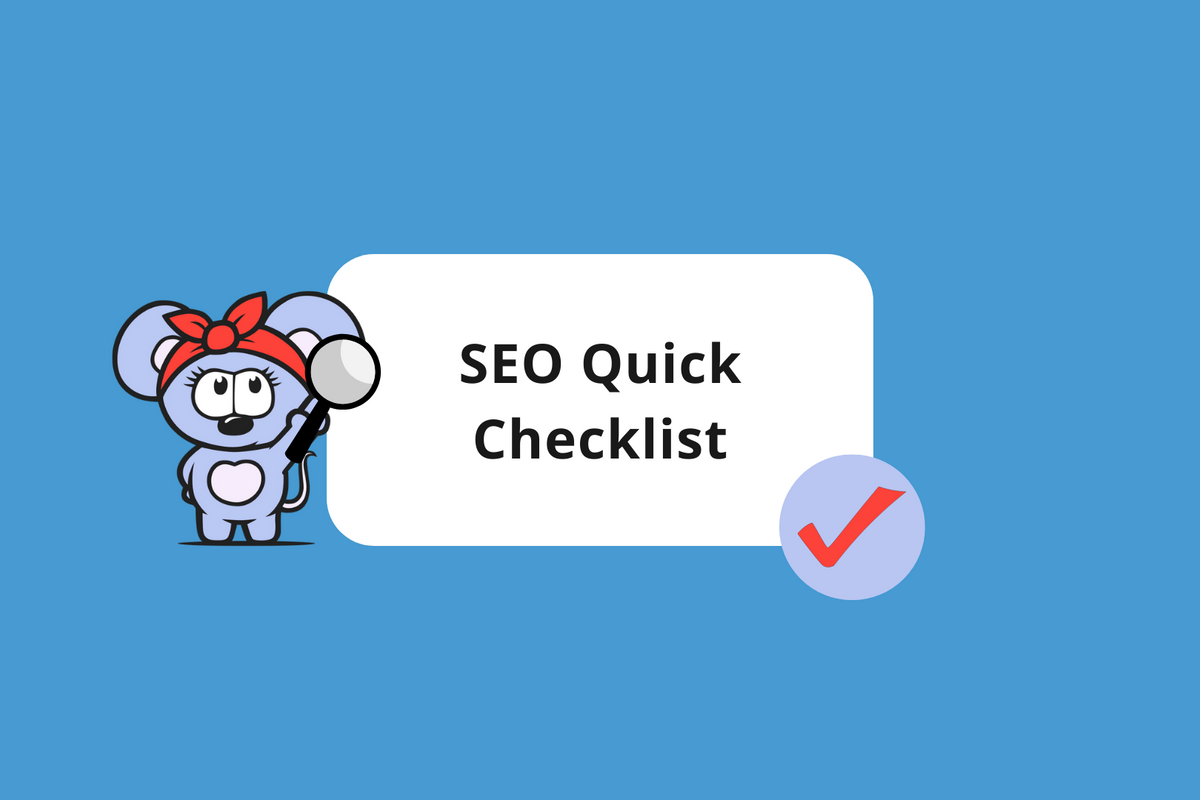
High-performance search is critical to every publisher’s bottom line, especially since search engine optimization (SEO) can dramatically impact content discovery and revenue. With over 90 percent of global traffic coming from Google, and SEO ROI that can reach more than 12.2 times the average marketing spend, mastering your search strategy has never been more important. But as users become more selective and Google’s crawler becomes more complex, the nuances of a successful search strategy are becoming harder for publishers and brands to wrap their head around.
Search is a difficult market to tap into. A study from Ahrefs found that around 90 percent of pages on the internet receive zero organic traffic from Google. At RebelMouse, we keep track of all of the important elements that make for a winning search strategy so that our clients can focus on creating content that resonates with their readers. Here are some tips we provide to the publishers on our platform to help them get the most out of search traffic.
SEO Quick Checklist: Mark off These Critical Steps for Search Success
Use Your Search Phrase Early and Often
Each piece of content you create should have a targeted search phrase or set of keywords you want to win. Google’s crawler looks for this phrase in your post’s URL, headline, article body, and even social shares. It’s most important to place your keywords early on in your URL, headline, first paragraph, and image tags. If you can’t get the key terms in your headline, try to put them in all of the other areas listed above.
RebelMouse enables you to easily create a separate headline and description for SEO whenever you prefer. Click here to learn more.
Your Click-Through Rate (CTR) Matters
If you are showing up on a search engine results page (SERP) and have a low CTR, your ranking could drop. Make sure your headlines and subheadlines are enticing enough to get people to click through to your site. Also, keep in mind that Google’s algorithm favors content that solves problems and answers questions . It’s important to provide clear, concise information to adequately support your desired keywords, but don’t go overboard. You don’t want users to have a hard time navigating your content to find their answer.
Add Backlinks
Backlinks are simply links within your content that link to another website to support your post’s ideas. Backlinks are key for SEO, so embedding lots of them in your article will help you rank for specific terms.
On RebelMouse, we offer an easy way to add backlinks to every post through our Around the Web (ATW) feature. Both for recirculation purposes and SEO purposes, it’s crucial to link to related stories on your own site and other sites with high domain authority.
It’s also a good idea to include internal links in your content. If you can, writing multiple articles on the same topic and then linking them back to a key content hub (or pillar post) is a great way to get ahead. After looking at our clients’ data, we found that articles with both ATW recirculation and link outs saw a 372% increase in users to content, while using either recirculation or link outs resulted in an approximate 100% increase. Click here to learn more.
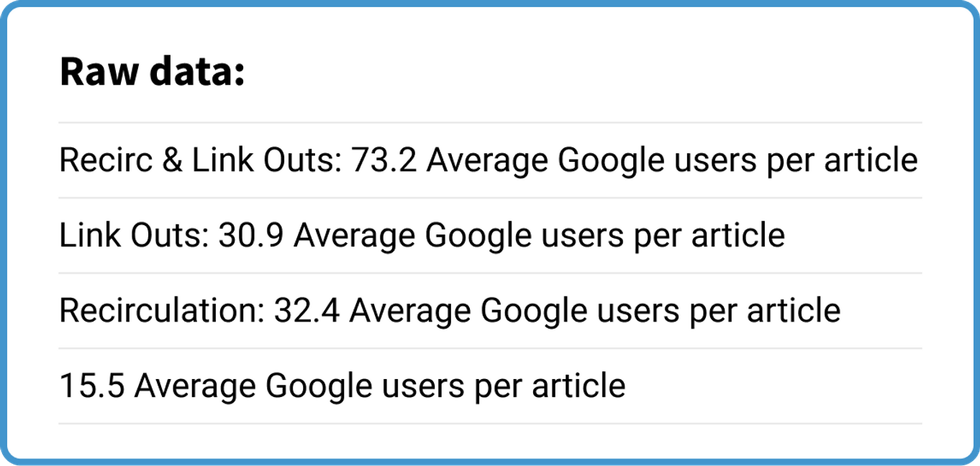
Use Alt Text on Every Image
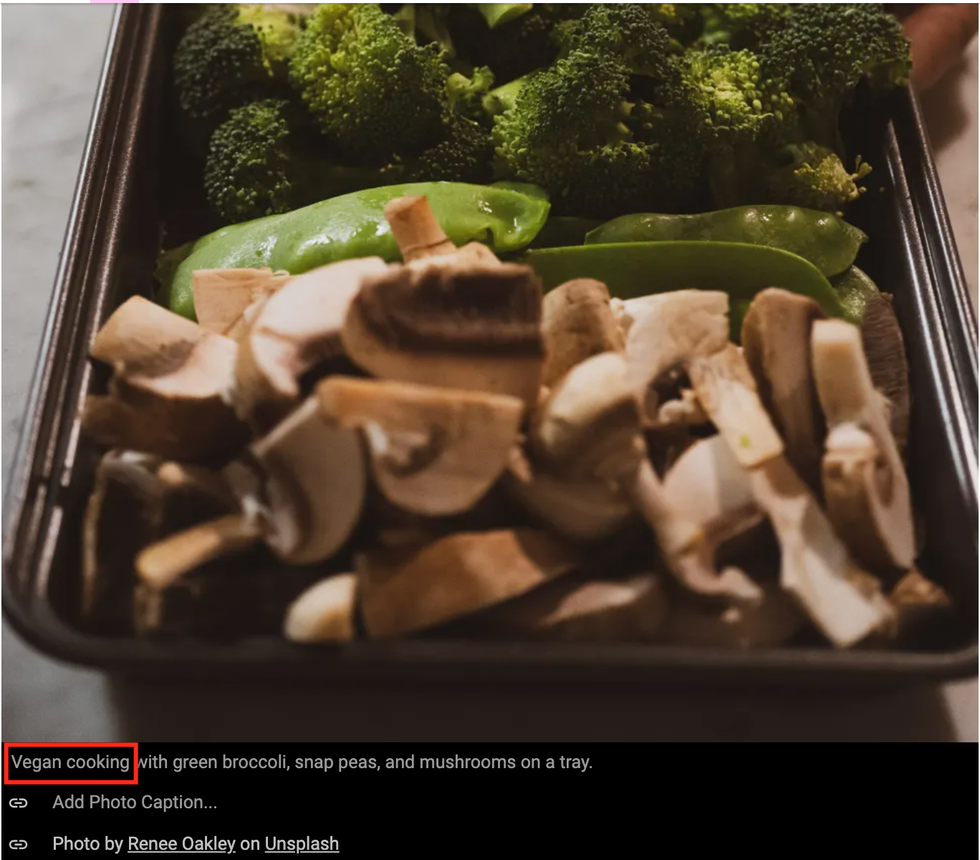
Adding alt text happens seamlessly alongside the image upload function on RebelMouse.
Alt text is a critical element to add to images since it provides a description of the image for screen readers to help bring a site to life for people who are visually impaired. It's also helpful for SEO and landing in Google Images’ search results because it helps Google understand what the image is. Click here to learn more.
Add Text Writeups to Your Interactive Content
Media elements, such as slideshows, interactives, and videos, need text writeups for both social media and SEO. These are descriptions of the media content that should be brief. In fact, it’s best to keep them to about 300 words or less. And when possible, it’s always great to add the transcript of a video or podcast for SEO and accessibility, and to increase time on site.
Use Questions
Using inquisitive language that includes “why” and “how” will also do very well since people love to search for things in the form of questions. For example, not “What time is the Super Bowl?” but “Does Iowa have a caucus?” This will help you identify the search patterns of users who are interested in your search phrase. By tailoring your content to those patterns, it's likely that your post will move up in Google Search’s rankings.
It can also help you land in Google’s “People Also Ask” module:
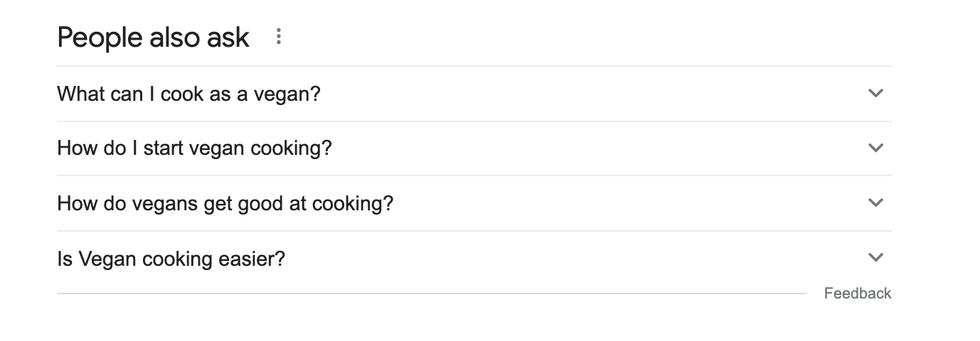
Click here to learn more about this strategy.
Make Sure Your Content Is Long Form
Longer, original content ranks higher than shorter, aggregated content. Thorough and reliable posts are the foundation of good SEO.
Add Subsections to Your Post
Adding subsections to your posts by using <h2> and <h3> header tags are a great way to reinforce your use of key terms, as well as make posts easier to read and more accessible. Click here to read about how we make this an intuitive part of your content workflow on RebelMouse.
Free Tools
Here’s a list of free SEO tools that you can use to make sure your content is set up for success.
- Keywords Everywhere : This is a browser add-on for Chrome and Firefox that shows keyword metrics like search volume, CPC, and competition on multiple websites.
- WordStream’s Free Keyword Tool : This tool allows you to research the competition level of your desired search phrases.
- AnswerThePublic : You can use this tool to see related questions being searched for about any topic.
- Google Trends : This is a great resource to compare the traffic for sets of keywords, even across geographic regions.
- Moz : Use this tool to see how competitive your keyword is.
- Google Search Console : This is an important resource that will show you which keywords your pages rank for, and which posts should be updated to capitalize on that traffic.
- Glimpse : This tool provides enhanced insights on the data you get from Google Trends.
How to Optimize Your Website for Search
This is just a quick list of SEO tips to help increase the chances of your content ranking well in SERPs. The complexity of Google’s crawler takes a lot of support from the right technology and people in order to have a search strategy that drives consistent, high-quality traffic.
RebelMouse features an SEO toolset that guides writers and editors to think critically about the right search phrase behind every story. It also empowers users to focus on small but meaningful modifications that are designed to improve organic search performance. Coupled with our relentless commitment to high-performance tech, our clients easily build meaningful loyalty and engagement with their audiences.
Click here to learn more about how we build and optimize websites for search.
Click here to get in touch so that we can start working together on transforming your business.
























